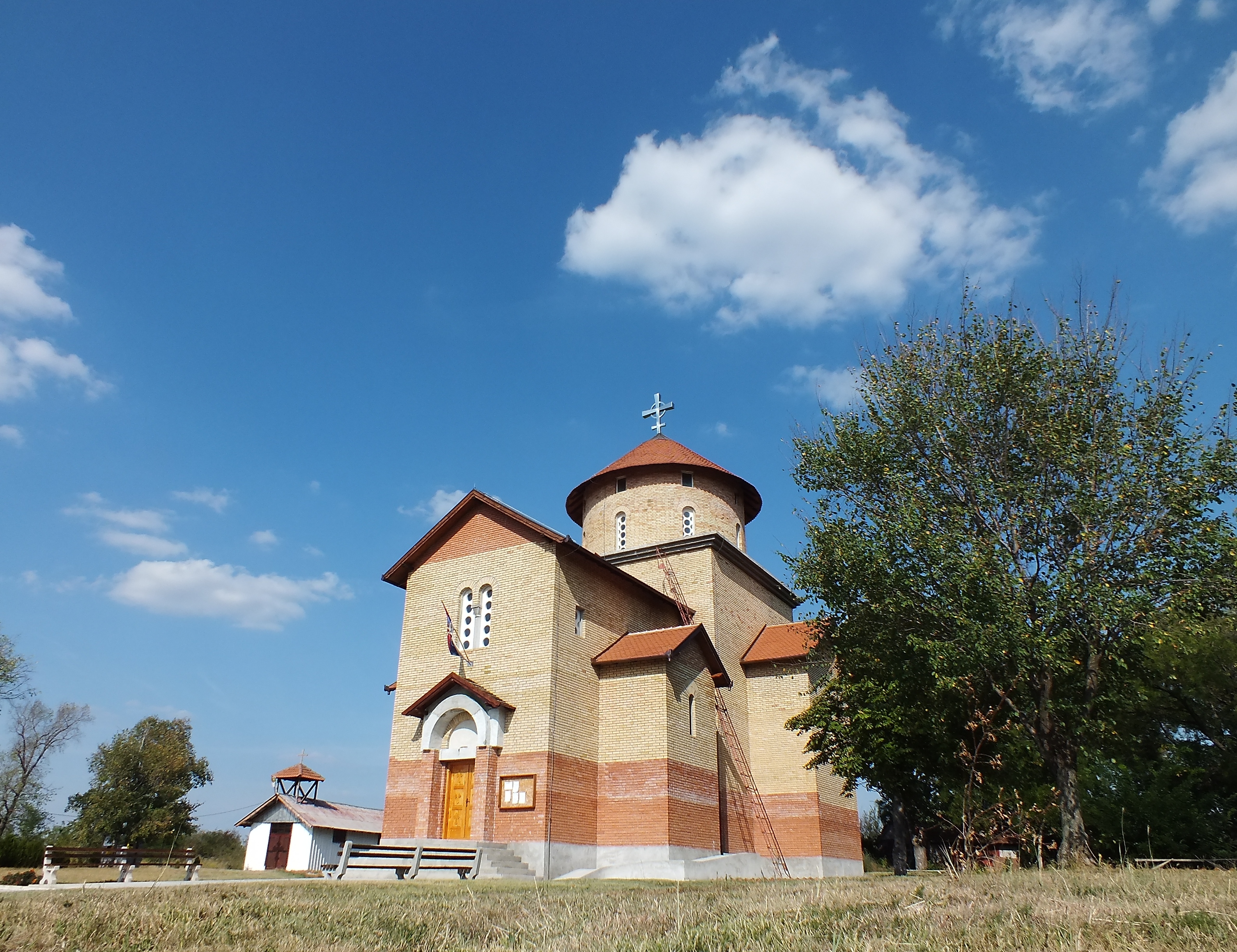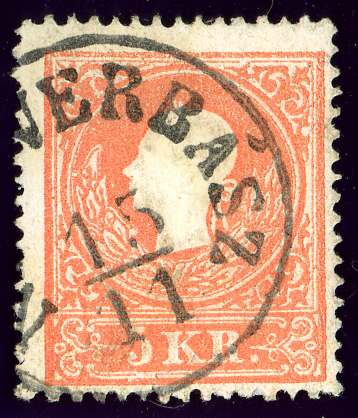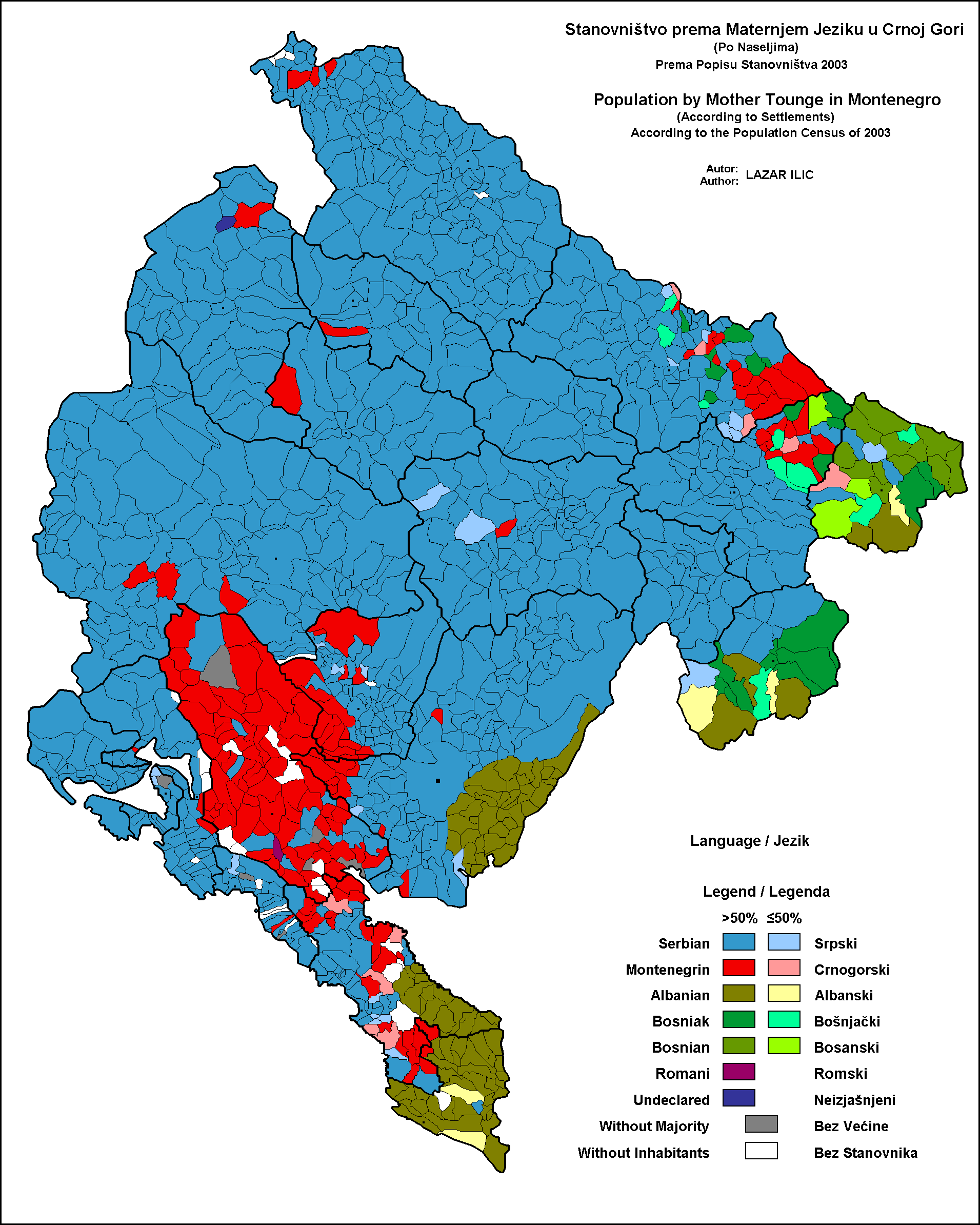|
Nenad Stevović
Nenad Stevović (; born 1962) is a Serbian politician, publicist, political scientist and a researcher. He is a prominent figure in the Montenegrin community in Serbia and is the founder and the president of the Montenegrin Party. Biography He was born in Lovćenac in 1962 to an ethnic Montenegrin family. He was the founder and first president of the Association of Montenegrins of Serbia "Crusader" (2003). He was also the founder and is the president of the Montenegrin Party (2008). He is the initiator and coordinator of the founding of the Montenegrin cultural and educational association "Princess Ksenija" from Lovćenac, the Montenegrin community of Prokuplje, the Montenegrin cultural and educational association "Montenegrina" from Subotica and the Montenegrin cultural center of Belgrade. He was the initiator of the twinning of Cetinje and the Vojvodina municipality of Mali Iđoš, where the settlement of Lovćenac is located (2005). Stevović was active before and during th ... [...More Info...] [...Related Items...] OR: [Wikipedia] [Google] [Baidu] |
Montenegrins Of Serbia
The Montenegrins of Serbia ( sr, Црногорци у Србији, Crnogorci u Srbiji) are a national minority in the country. According to the 2011 census, there are 38,527 citizens of recent Montenegrin descent, Montenegrin Serbs, or ethnic Montenegrins in Serbia. They are the sixth largest ethnic community in the Vojvodina province. Geography The largest concentration of Montenegrins in Vojvodina could be found in the municipalities of Vrbas (24.79%), Mali Iđoš (20.83%), and Kula (16.34%). Settlements in Vojvodina with an absolute or relative Montenegrin majority are: Lovćenac in the Mali Iđoš municipality with 56.86% Montenegrins, Kruščić in the Kula municipality with 32.64%, and Montenegrins in Savino Selo in the Vrbas municipality with 38.20% Montenegrins. Formerly, the village of Bačko Dobro Polje in the Vrbas municipality also had a Montenegrin majority (According to the 1971 census, Montenegrins comprised 55.39% of population of this village, while acco ... [...More Info...] [...Related Items...] OR: [Wikipedia] [Google] [Baidu] |
Petar II Petrović-Njegoš
Petar II Petrović-Njegoš ( sr-cyrl, Петар II Петровић-Његош, ; – ), commonly referred to simply as Njegoš (), was a Prince-Bishop (''vladika'') of Montenegro, poet and philosopher whose works are widely considered some of the most important in Montenegrin and Serbian literature. Njegoš was born in the village of Njeguši, near Montenegro's then-capital Cetinje. He was educated at several Serbian monasteries and became the country's spiritual and political leader following the death of his uncle Petar I. After eliminating all initial domestic opposition to his rule, he concentrated on uniting Montenegro's tribes and establishing a centralized state. He introduced regular taxation, formed a personal guard and implemented a series of new laws to replace those composed by his predecessor many years earlier. His taxation policies proved extremely unpopular with the tribes of Montenegro and were the cause of several revolts during his lifetime. Njegoš' ... [...More Info...] [...Related Items...] OR: [Wikipedia] [Google] [Baidu] |
1962 Births
Year 196 ( CXCVI) was a leap year starting on Thursday (link will display the full calendar) of the Julian calendar. At the time, it was known as the Year of the Consulship of Dexter and Messalla (or, less frequently, year 949 '' Ab urbe condita''). The denomination 196 for this year has been used since the early medieval period, when the Anno Domini calendar era became the prevalent method in Europe for naming years. Events By place Roman Empire * Emperor Septimius Severus attempts to assassinate Clodius Albinus but fails, causing Albinus to retaliate militarily. * Emperor Septimius Severus captures and sacks Byzantium; the city is rebuilt and regains its previous prosperity. * In order to assure the support of the Roman legion in Germany on his march to Rome, Clodius Albinus is declared Augustus by his army while crossing Gaul. * Hadrian's wall in Britain is partially destroyed. China * First year of the '' Jian'an era of the Chinese Han Dynasty. * Emperor Xian ... [...More Info...] [...Related Items...] OR: [Wikipedia] [Google] [Baidu] |
Living People
Related categories * :Year of birth missing (living people) / :Year of birth unknown * :Date of birth missing (living people) / :Date of birth unknown * :Place of birth missing (living people) / :Place of birth unknown * :Year of death missing / :Year of death unknown * :Date of death missing / :Date of death unknown * :Place of death missing / :Place of death unknown * :Missing middle or first names See also * :Dead people * :Template:L, which generates this category or death years, and birth year and sort keys. : {{DEFAULTSORT:Living people 21st-century people People by status ... [...More Info...] [...Related Items...] OR: [Wikipedia] [Google] [Baidu] |
Matica Crnogorska
Matica crnogorska ( cnr, Матица црногорска, ) is a Montenegrin cultural institution. It was founded in 1993 as a non-governmental organization which promotes Montenegrin national and cultural identity and the Montenegrin language. In 2008, the Parliament of Montenegro adopted the Law on Matica crnogorska, which gave it the status of an independent cultural institution. In 2000, it began publishing the magazine "Matica". History Matica crnogorska was formed on 22 May 1993 in Cetinje. The Matica was one of firm supporters of the country's independence. On 18 March 2008, the Parliament of Montenegro passed the Act of Matica crnogorska, which signifies it as an independent organization in the cultural field. Presidents Presidents of Matica Crnogorska: *Dragan Radulović (22 May 2013 – present) *Branko Banjević (23 January 1999 – 22 May 2013) *Božina Ivanović Božina M. Ivanović ( sr-cyrl, Божина М. Ивановић; 31 December 1931 – 10 October 2 ... [...More Info...] [...Related Items...] OR: [Wikipedia] [Google] [Baidu] |
Feketić
Feketić ( sr-cyr, Фекетић, hu, Bácsfeketehegy, german: Feketitsch or ) is a village located in the Mali Iđoš municipality, in the North Bačka District of Serbia. It is situated in the Autonomous Province of Vojvodina. The village has a Hungarian ethnic majority and its population numbering 4,308 people, including 2,672 Hungarians (2002 census). History The settlement is first mentioned in 1465 as Feketehegyház. Historical population *1961: 5,387 *1971: 4,818 *1981: 4,688 *1991: 4,542 Notable people * Maurice Krishaber, naturalised French Hungarian otorhinolaryngologist. * Ana Pešikan, former Minister of Science and Technology in the Government of Serbia. *Yuri Schwebler, conceptual artist See also * List of places in Serbia * List of cities, towns and villages in Vojvodina References * Slobodan Ćurčić, Broj stanovnika Vojvodine, Novi Sad, 1996. External links History of Feketić Street Map Places in Bačka Populated places in North Bačka District ... [...More Info...] [...Related Items...] OR: [Wikipedia] [Google] [Baidu] |
Kula, Serbia
Kula ( sr-Cyrl, Кула, rue, Кула, hu, Kúla) is a town and municipality located in the West Bačka District of the autonomous province of Vojvodina, Serbia. The town has a population of 17,866, while the municipality has a population of 43,101. Name In Serbian, the town is known as ''Kula'' (Кула); in Rusyn as Кула, in Hungarian as ''Kúla'', in Croatian as ''Kula'', in German as ''Kula'' or ''Wolfsburg'', and in Turkish as ''Kula''. The name ''Kule'' means "tower" in Turkish and Serbian. In the 16th-17th century, a tower with Ottoman military garrison existed at this location, hence the name of the town. However it cannot be said for sure whether Ottoman Turks or local Serbs gave this name to the town. History In the middle of the 17th century, during Ottoman administration, two settlements with this name were mentioned - ''Gornja Kula'' and ''Donja Kula''. These settlements were part of the Ottoman Sanjak of Segedin and were populated by ethnic Serbs. ... [...More Info...] [...Related Items...] OR: [Wikipedia] [Google] [Baidu] |
Vrbas, Serbia
Vrbas ( sr-Cyrl, Врбас; hu, Verbász) is a town and municipality located in the South Bačka District of the autonomous province of Vojvodina, Serbia. As of 2011, the town had a population of 24,112, while the municipality had 42,092 inhabitants. Name Its name stems from the word "Willow" in the Serbian language. During the SFRY period, the town was renamed ''Titov Vrbas'' (meaning "the Vrbas of Tito"), after Josip Broz Tito. Like all other towns in Socialist Yugoslavia named after Tito, the first part was dropped once the new states were formed during the early 1990s. In Rusyn, the town is known as ''Вербас'', in Hungarian as ''Verbász'', in Croatian as ''Vrbas'', in German as ''Werbass'', and in Turkish as ''Verbas''. History Vrbas was mentioned first in 1213 during the administration of the Kingdom of Hungary. According to other sources, it was mentioned first in 1387. In the 16th century it became a part of the Ottoman Empire. During Ottoman administration i ... [...More Info...] [...Related Items...] OR: [Wikipedia] [Google] [Baidu] |
Montenegrin Language
Montenegrin ( ; cnr, label=none, / ) is a normative variety of the Serbo-Croatian language mainly used by Montenegrins and is the official language of Montenegro. Montenegrin is based on the most widespread dialect of Serbo-Croatian, Shtokavian, more specifically on Eastern Herzegovinian, which is also the basis of Standard Croatian, Serbian, and Bosnian. Montenegro's language has historically and traditionally been called either Serbian or Montenegrin. The idea of a standardized Montenegrin standard language separate from Serbian appeared in the 1990s during the breakup of Yugoslavia, through proponents of Montenegrin independence from the State Union of Serbia and Montenegro. Montenegrin became the official language of Montenegro with the ratification of a new constitution on 22 October 2007. Language standardization In January 2008, the government of Montenegro formed the Board (Council) for Standardization of the Montenegrin Language, which aims to standardize the ... [...More Info...] [...Related Items...] OR: [Wikipedia] [Google] [Baidu] |
Montenegro
) , image_map = Europe-Montenegro.svg , map_caption = , image_map2 = , capital = Podgorica , coordinates = , largest_city = capital , official_languages = Montenegrin , languages2_type = Languages in official use , languages2 = , ethnic_groups = , ethnic_groups_year = 2011 , religion = , religion_year = 2011 , demonym = Montenegrin , government_type = Unitary parliamentary republic , leader_title1 = President , leader_name1 = Milo Đukanović , leader_title2 = Prime Minister , leader_name2 = Dritan Abazović (acting) , leader_title3 = Speaker , leader_name3 = Danijela Đurović , legislature = Skupština , sovereignty_type = Establishment history , established_event1 = Principality of Duklja , established_date1 ... [...More Info...] [...Related Items...] OR: [Wikipedia] [Google] [Baidu] |
Montenegrin Party
The Montenegrin Party (, CP) is a political party in Serbia, representing the Montenegrin minority. It is based in the city of Novi Sad. The party was founded by Nenad Stevović, who was its leader from 2008 to 2014, when he resigned. History The Montenegrin Party was founded on 18 February 2008 and was registered as a political party in the Serbian Ministry of Justice on 22 February 2008, becoming the first political party that represents the Montenegrin minority in Serbia. Montenegrin Party ran as a minority list in the 2008 parliamentary election. However, the party won only 0.07% of votes, failing to obtain a seat in the National Assembly. The party also ran independently in the 2012 and 2014, winning 0.1% and 0.18% votes respectively. In the 2014 election the Montenegrin Party electoral list was headed by Joška Broz, president of the Communist Party A communist party is a political party that seeks to realize the socio-economic goals of communism. The term ''commu ... [...More Info...] [...Related Items...] OR: [Wikipedia] [Google] [Baidu] |
2006 Montenegrin Independence Referendum
An independence referendum was held in Montenegro on 21 May 2006. Nohlen, D & Stöver, P (2010) ''Elections in Europe: A data handbook'', p1372 It was approved by 55.5% of voters, narrowly passing the 55% threshold. By 23 May, preliminary referendum results were recognized by all five permanent members of the United Nations Security Council, suggesting widespread international recognition if Montenegro were to become formally independent. On 31 May, the referendum commission officially confirmed the results of the referendum, verifying that 55.5% of the population of Montenegrin voters had voted in favor of independence. Because voters met the controversial threshold requirement of 55% approval, the referendum was incorporated into a declaration of independence during a special parliamentary session on 31 May. The Assembly of the Republic of Montenegro made a formal Declaration of Independence on Saturday 3 June. In response to the announcement, the government of Serbia declared ... [...More Info...] [...Related Items...] OR: [Wikipedia] [Google] [Baidu] |







